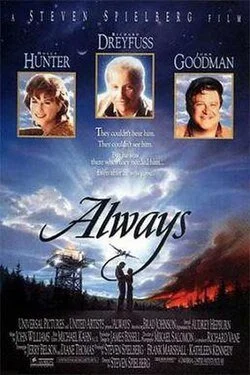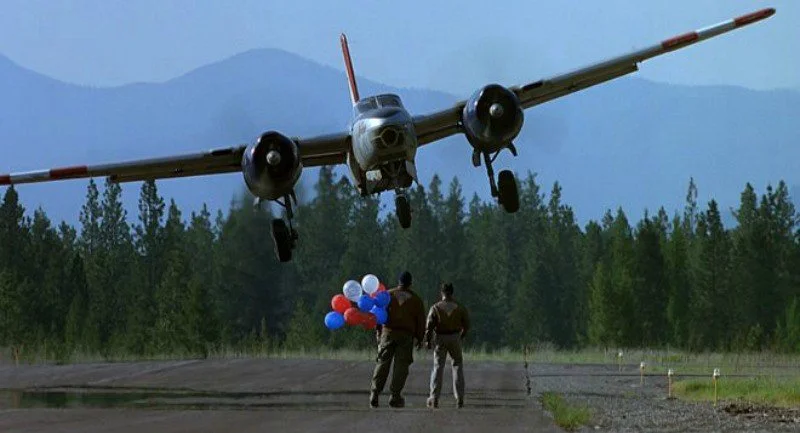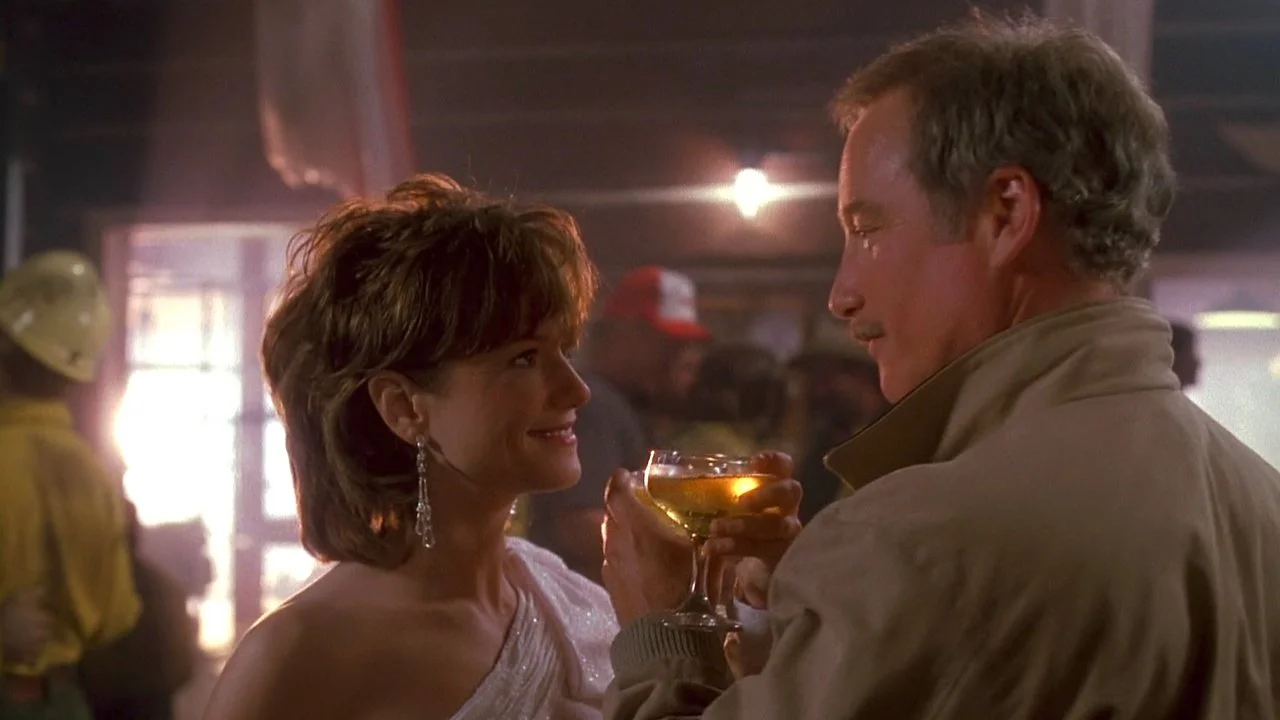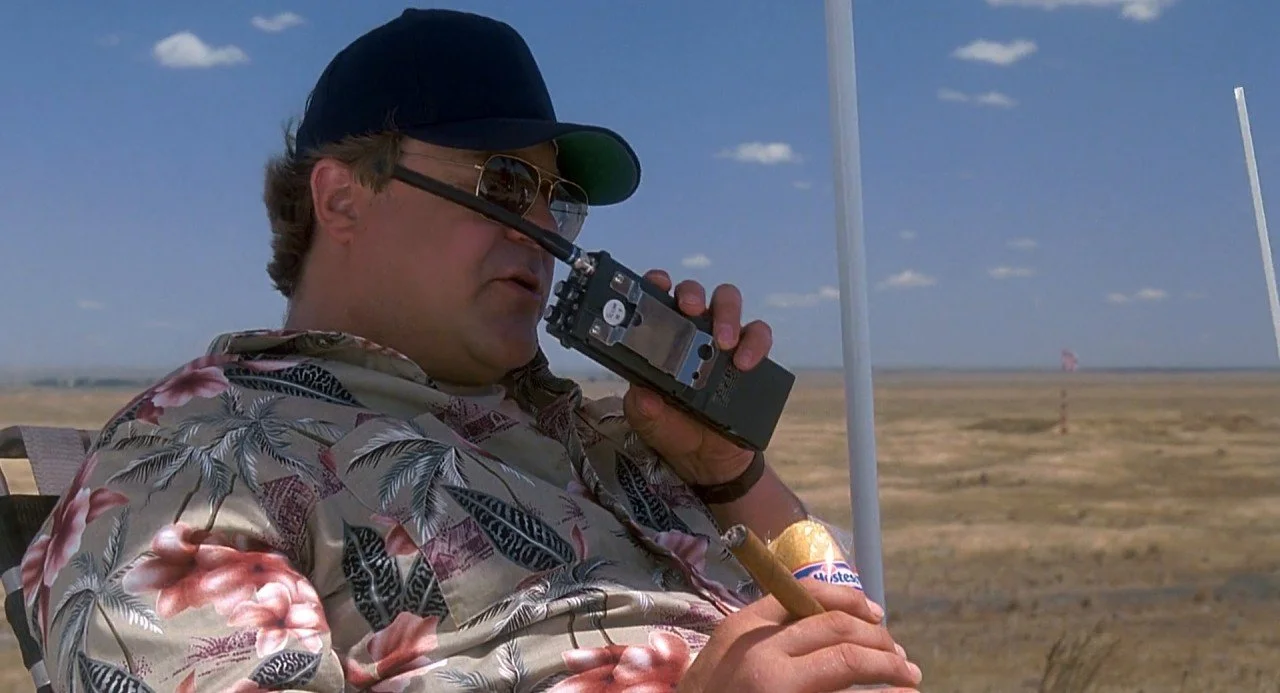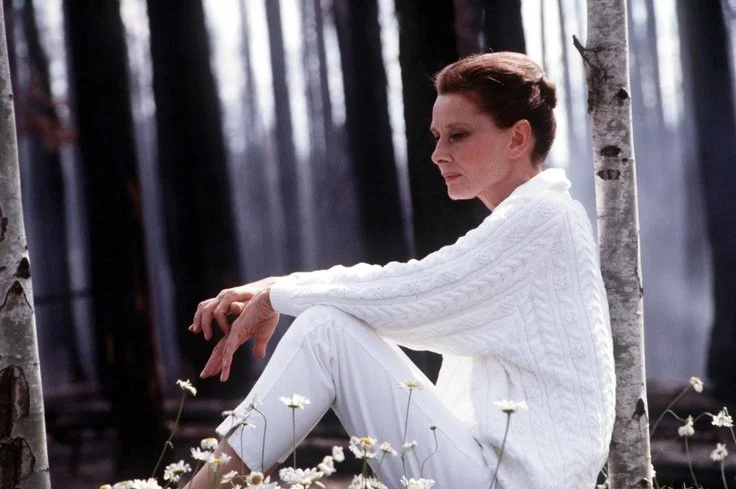Can’t ALWAYS Nail It: Spielberg Summer 2 Concludes!
When one reviews Steven Spielberg’s chronological filmography, 1989 stands out as a particularly significant year.
The end of the 80s provides us the first year to contain two Spielberg movies, although it certainly wouldn’t be the last: 1993 would yield both JURASSIC PARK and SCHINDLER’S LIST, 1997 would bring us THE LOST WORLD: JURASSIC PARK and AMISTAD, 2002 generated MINORITY REPORT and CATCH ME IF YOU CAN, 2005 was home to both WAR OF THE WORLDS and MUNICH and 2011 launched THE ADVENTURES OF TINTIN and WAR HORSE. This quirk in Spielberg’s oeuvre is notable, both for how often it happened, as well as how these bespoke double feature almost always paired entries that were so different from each other, perhaps an indication as to his under-appreciated range in genre.
So it goes with 1989’s INDIANA JONES AND THE LAST CRUSADE and ALWAYS. The former was the latest (and temporarily final) entry in Spielberg’s throwback homage to the adventure serial, which ended up being a majorly successful endcap to his defining franchise. The latter was a passion project for both its director and its lead, borne both from the love of the same movie and a desire to pay tribute to the old-timey war pictures of the 1940’s. That one…well, that one was fairly less successful, both at the box office (74 million versus 474 million for INDY 3) and critically…well, at least in the eyes of this critic.
Let’s wrap up Spielberg Summer 2 with one of his more obscure works, the first without-a-doubt “one for me” film, one perhaps most remembered for it being a Hollywood legend’s swan song more than anything else ... .it's time for ALWAYS!
ALWAYS (1989)
Directed by: Steven Spielberg
Starring: Richard Dreyfuss, Holly Hunter, John Goodman, Brad Johnson, Audrey Hepburn
Written by: Jerry Belson, an uncredited Diane Thomas
Released: December 22, 1989
Length: 122 minutes
ALWAYS throws us into the world of aerial firefighting, as Pete Sandich (Dreyfuss) continuously shows off his propensity for flying recklessly into fires, unsettling both his best friend Al (Goodman) and his girlfriend Dorinda (Hunter). Over the course of the movie’s first hour, Dorinda finally gets Pete to hang up his wings and move into more of a mentor role in another town, to finally settle down and get married. Alas, before they do, Pete gets called in for one last job, and…well, you can probably guess what happens next.
As Pete awakes from the wreckage and finds himself now in the afterlife, he’s tasked with mentoring another young aerial firefighter, the brash Ted Baker (Johnson), a duty that goes awry when Ted ends up beginning to woo Dorinda. As Dorinda also begins to fall in love with Ted, Pete has to start asking himself, how long can he keep himself from moving on? At what point do you say in death what you never could in life, then allow the normal course of history to move forward?
It’s all very sweet in an old-fashioned way, which is completely by design. The impetus for ALWAYS getting made in the first place was Richard Dreyfuss and Steven Spielberg filming JAWS and bonding over a 1943 Dalton Trumbo-penned film called A GUY NAMED JOE. It turns out both men have an intense relationship with the movie, with Dreyfuss claiming to have seen it at least 35 times, and Spielberg crediting it as one of the films that inspired him to become a director in the first place (ever the lost child, he found a throughline between A GUY NAMED JOE and his own WWII veteran father).
So, the impulse to remake it makes all the sense in the world. More to the point, Spielberg had clearly reached the point of his career where he could start making movies that were purely “just for him”. He could have just as easily not made ALWAYS; it’s fairly definitively the least remembered film released during his prime years. Yes, it made 74 mill off of a 30 mill budget, and received some pretty decent reviews, all of which is preferable to being a public disaster like 1941. But after three INDIANA JONES movies, E.T. and major Oscar contenders like EMPIRE OF THE SUN and THE COLOR PURPLE (with major hitters like JURASSIC PARK and SCHINDLER’S LIST on the horizon) it’s odd that ALWAYS is just sitting there.
But it’s a movie about planes and WWII and (spiritually speaking) old Hollywood. It’s a project he got to work on with a cherished collaborator. So ALWAYS was made. Why not? It’s Steven Spielberg. And ALWAYS is a comfortable movie, both confident and competent in equal measures, and, when working through his filmography from start to finish, there’s admittedly something to be said for landing on such a small-feeling movie after a run of monumental blockbusters and awards fodder.
But, none of this really helps remove this basic fact…I didn’t like ALWAYS that much.
Yes, it’s a movie that gets accused of overt sentimentality (Leonard Maltin diagnosed it as having “a Case of the Cutes”, which, lol), and it’s not an incorrect criticism. But, even by 1989, we’ve basically reached a point in Spielberg’s career where that’s just kind of his thing. The cheese sometimes gets to be too much in ALWAYS, but I also went in expecting that. At the end of the day, it has its heart on its sleeve just as much as E.T., it’s just way more upfront about it.
No, my main issue with ALWAYS is that I just don’t buy the main romance, nor do I really buy Dreyfuss and Hunter together. I understand that Dreyfuss is kind of part and parcel with this project (it likely doesn’t exist without him), but he’s an odd fit for an everyman love interest role. What made his character work in Dreyfuss’ other Spielberg collaboration (JAWS) is that he was both the smartest guy in the room, and also fairly anti-social. Even when he was right about his assessment of things, it was fun to watch Quint laugh in his face and tell him to sit down. Dreyfuss is simply more effective when he’s high-strung. He’s not exactly ideal for a roguish flyboy who is humbled in the afterlife.
As for Holly Hunter, she’s just one of those “I’ll take your word for it” actresses for me; she’s never actively frustrated me, but I also feel alienated by those that adore her. I’ve always found her a little cold and distant, which can admittedly pay off in some roles. But in a sweeping old-fashioned romance? She just doesn’t work for me. Put Hunter and Dreyfuss together and you get a couple who sometimes seems shocked to be in the same room at the same time.
The problem is that ALWAYS absolutely hinges on you being invested in these two. The whole thing depends on it. And if you don’t…well, ALWAYS just kind of lies there, especially in its first hour, which is constantly laying the tracks for these two characters to reach their tragic separation, a move that you frankly can see coming a mile away. And that predictable plot doesn’t necessarily need to be a problem in a love story; it could even be a benefit in drama if done right. Consider that the play Romeo & Juliet opens with a prologue that tells us they’re going to die. Yet, in the hands of a pair of great actors with strong chemistry, this tip-off has you on the edge of your seat, begging for the finger of fate to point elsewhere, just this once.
But Pete and Dorinda, alas, are no Romeo and Juliet. You just don’t believe they’re in love, or at least I didn’t. One has to wonder if a complete casting change at the top would have gone a long into making ALWAYS special.
Hunter and Dreyfuss aren’t the only weird casting fits. Another odd casting choice is that of Brad Johnson as the dashing Ted Baker. Johnson was apparently a former Marlboro Man making his film debut, and he’s definitely fine, if unremarkable. But it’s the type of role that demands a star-level presence to justify the threat Pete feels towards him, as well as (again) to buy the blossoming romance between Ted and Dorinda. Baker just didn’t move the needle for me. Allegedly, at one point in the films’ decade-long development period, Ted was going to be played by Tom Cruise, which…hell yeah, 80’s era Cruise! Now we’re talking. I think if Cruise were able to tap into his charming and raw, in-need-of-mentoring persona from THE COLOR OF MONEY, I think that would have given ALWAYS the little extra boost it needed.
ALWAYS is not all bad. John Goodman is his normal fun self in the “best friend” role, and Marg Helgenberger briefly livens things up in a pair of scenes. But nothing can really overcome the fact that, for as near and dear to his heart this source material and filmmaking style is to him, Spielberg is kind of on auto-pilot here. The opportunity to see him cut his teeth on a smaller budget again, after a decade of skyrocketing fame, should have allowed him to infuse the screen with some passion and intimacy. Instead, ALWAYS often resembles an over-long episode of an anthology series.
Of course, the most famous thing about ALWAYS is the fact that it wound up containing the final film performance for one MS. Audrey Hepburn, a legend with a filmography that’s somewhat briefer than it might feel (27 movies in all, and a few of the early ones are really glorified bit parts). Yet, her career manages to speak for itself all the same: nobody can argue the legacy of a woman who starred in SABRINA, ROMAN HOLIDAY, FUNNY FACE, BREAKFAST AT TIFFANY’S, fucking CHARADE, MY FAIR LADY, HOW TO STEAL A MILLION and (one of my sneaky favorites of her career) WAIT UNTIL DARK. It’s a career worthy of a retrospective all its own (and in fact, in a previous iteration of this blog, I dedicated a whole month to her work). So it’s hard not to get swept up in the moment of her showing up on screen for the last time, chronologically speaking.
And, look, even at the age of 59, she has that undeniable, one-in-a-lifetime screen presence that elevates even the thinnest of roles, and there’s something kind of sweet about the idea of being greeted in heaven by Audrey Hepburn. But…if you remove all of that, it’s hard to square the fact that her role is…deeply strange? Like, who is she, really? Is she an angel? Is she God? Why is she giving Pete a haircut? It feels for all the world like the goal here was just to give this vague role to a Hollywood superstar and hope nobody asks any questions. It almost works, an indication of pitch-perfect casting.
Anyway, Audrey’s great in this, and she single-handedly provides some historical importance to ALWAYS (as well as a solid, definitive reason to watch it), a movie that otherwise might have faded away entirely. It’s not a disaster, and I’m not surprised by the occasional hot take online singing its virtues. However, you’re not likely to see one of them fired off by me.
That said, ALWAYS is a good example of this Spielberg Summer project’s appeal for me. There is a very real chance I would have had no other incentive to check this one out, and I was finally able to check this one off the list. There will eventually be no new Spielberg movie for me to finally see; thus, I may as well cherish the ALWAYSes of his filmography while I have them.
Anyway, that’s a wrap on Spielberg Summer 2. Next time we pick this project up, I’ll be diving into his 90’s output, including some of his biggest movies ever. I can’t wait! I hope you can’t either.
